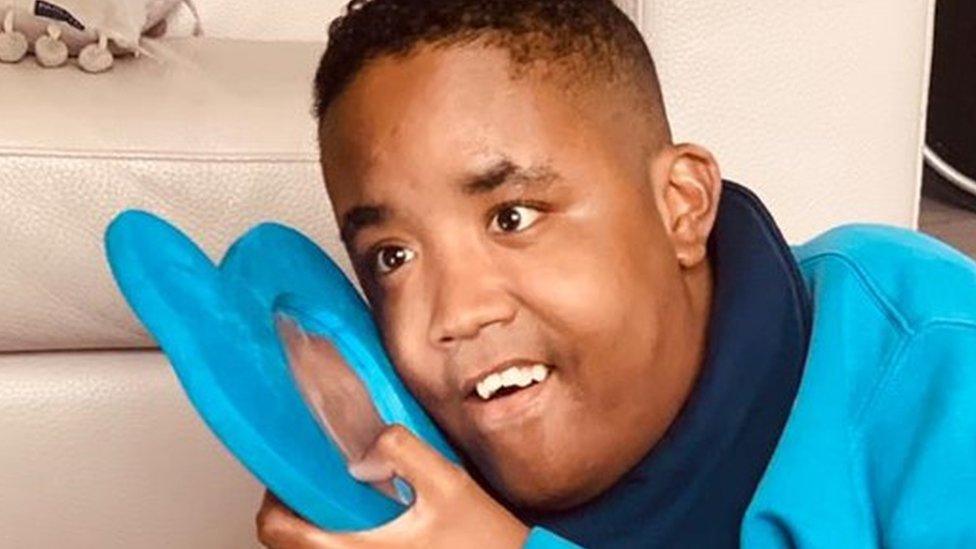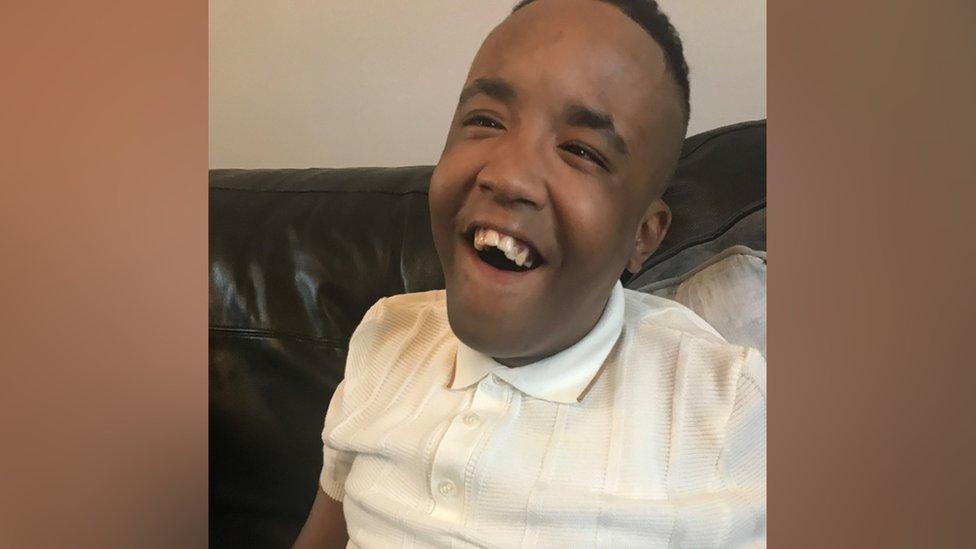Darnell Smith death: Medical staff should listen to parents, mum says
- Published

Darnell was "happy, social, and loved everybody and anybody", his family said
A mum whose son died after suffering complications linked to a blood disorder has called on doctors to "listen to parents" when giving care.
Non-verbal patient Darnell Smith, 22, died in the Royal Hallamshire Hospital in Sheffield in November 2022.
Mr Smith, who had sickle cell disease, had his vital signs checked once in 12 hours, a coroner previously heard.
Sheffield Teaching Hospitals NHS Foundation Trust has apologised and said it had learned from the case.
Mr Smith, from Sheffield, also had cerebral palsy, was non-verbal and was completely dependent on others for his daily needs and medical care.
When admitted to hospital, his parents Leila and Errol said they told staff "he was in crisis" because of the "cruel" sickle cell disease.
"When you know your child, you know your child," Mrs Smith said.
'Mum, please help'
The suspected crisis was a complication where the blood flow is blocked due to cells becoming stuck in a blood vessel - and a possible respiratory tract infection.
"Nurses were dismissive, at one point they asked if I wanted security calling because we were obviously quite irate, our child was ill," Mrs Smith said.
"I'd never have seen him in that much pain before. It was almost like he was looking at me in my eyes 'saying mum, please help me'," she said.

Darnell had a specialised care plan for when he would go to hospital
She now wants nurses to acknowledge "what parents say, doctors listening to parents or carers of someone who's non-verbal".
"I do believe if Darnell had the correct care, he'd still be here," she added.
An inquest earlier this year found his vital signs were checked at 02:16 GMT on 7 November, shortly after his admission, but not checked again until more than 12 hours later.
That was despite Mr Smith having an individualised care plan which instructed his vital signs should be checked hourly for a minimum of six hours.
'Painful, angry'
The inquest was told that his health passport was not in his records and was not available to staff until more than eight-and-a-half hours after his admission.
"It was very painful, and it still is," Mr Smith said.
"I still think back to that two-and-a-half weeks we spent in hospital with him.
"I try not to be angry about it anymore because there's not much I can do about it now."
It was now hoped deaths like Darnell's will be prevented, he added.
The Sheffield Teaching Hospitals NHS Foundation Trust said it was implementing a new electronic patient care record system this year, which would ensure all patient records were more readily accessible to its staff.
The trust's medical director, Dr Jennifer Hill, said: "I would like to apologise again that we did not carry out Darnell's observations as frequently as we should have done, and that his individualised care plan was not immediately visible to staff.
"I know that we cannot take away the pain that Darnell's family are feeling, but I hope that I can reassure them that we have learnt from this and are taking actions to limit the chances of this happening again."

Follow BBC Yorkshire on Facebook, external, Twitter, external and Instagram, external. Send your story ideas to yorkslincs.news@bbc.co.uk, external.